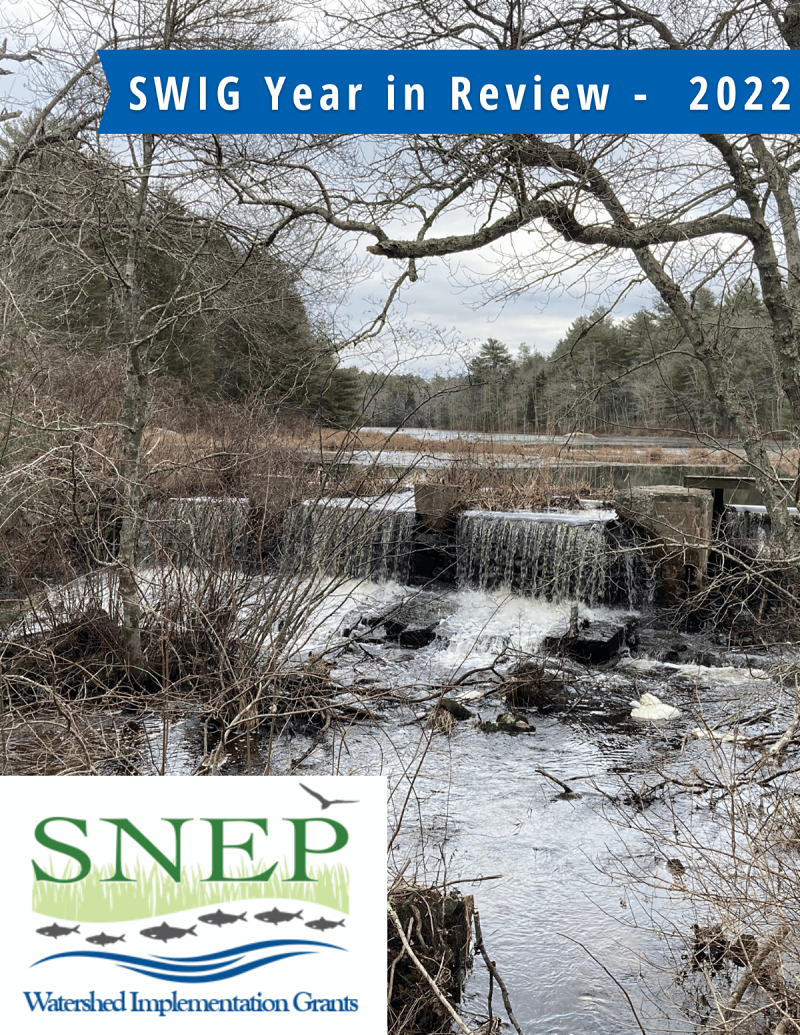2022 SNEP Watershed Implementation Grants Impact Report

Learn more about our work supporting restoration and water quality improvement in the Southeast New England Region. We’d like to give special thanks to our partners at EPA Region 1 and the SNEP Network, as well as our numerous grantees and local partners for making this program a success.
CLICK HERE TO DOWNLOAD THE FULL REPORT
Program Summary
In 2012, at the direction of Congress, the U.S. Environmental Protection Agency (EPA) created the Southeast New England Program (SNEP), a comprehensive effort to restore and protect the region’s coastal waters and watersheds. SNEP works in partnership with stakeholders in these states to promote a resilient ecosystem of clean water, healthy diverse habitats, and sustainable communities in Southeast New England.
To help restore clean water and healthy ecosystems to Southeast New England, Restore America’s Estuaries launched the Southeast New England Program (SNEP) Watershed Grants. With financial support from the EPA, the grants target water pollution, habitat degradation, and other high-priority environmental issues, in order to foster sustainable coastal and watershed communities.
The geographic region eligible for SNEP Watershed Grants extends from Westerly, RI to Pleasant Bay on Cape Cod, encompassing the major estuaries of Narragansett Bay and Buzzards Bay, and their watersheds as far north as Worcester, Mass. It includes the south shore of Cape Cod as well as Martha’s Vineyard, Nantucket, Block Island and the Elizabeth Islands. Please refer to this boundary map of the SNEP region.
SNEP Watershed Grants target integrated approaches to water quality and ecosystem restoration. SNEP recognizes that clean water, healthy habitats, resilient ecosystems, and prosperous communities are closely interconnected, and that strong partnerships offer the most effective means of meeting Southeast New England’s environmental challenges.
Clean water, healthy watersheds, and vibrant coastal ecosystems are essential to the communities of Southeast New England — a foundation of our region’s prosperity and quality of life. In Rhode Island and Massachusetts, clean water and healthy coastal ecosystems generate billions of dollars in economic value through beach-going, fishing, tourism, and many other uses. Yet despite recent improvements, water pollution and ecosystem degradation threaten our most important natural assets.
Past rounds of SNEP grants have funded a variety of successful projects to restore clean water and coastal ecosystems. One priority is nutrient pollution to coastal waters. Nutrients such as nitrogen and phosphorus harm coastal ecosystems throughout Southeast New England by fertilizing excess growth of seaweeds, plankton, and other algae.
This reduces the oxygen in the water that fish and shellfish need to survive; degrades coastal habitats such as salt marshes and marine bottoms; and can catalyze outbreaks of toxic algae that pose acute health risks to humans and wildlife.
SNEP grants for innovative approaches to storm water management, septic system research and coastal resilience are already helping Southeast New England communities tackle such pressing environmental issues.
SNEP seeks to fund partnerships in order to leverage the resources of state, local, academic, corporate, non-profit and tribal organizations.
